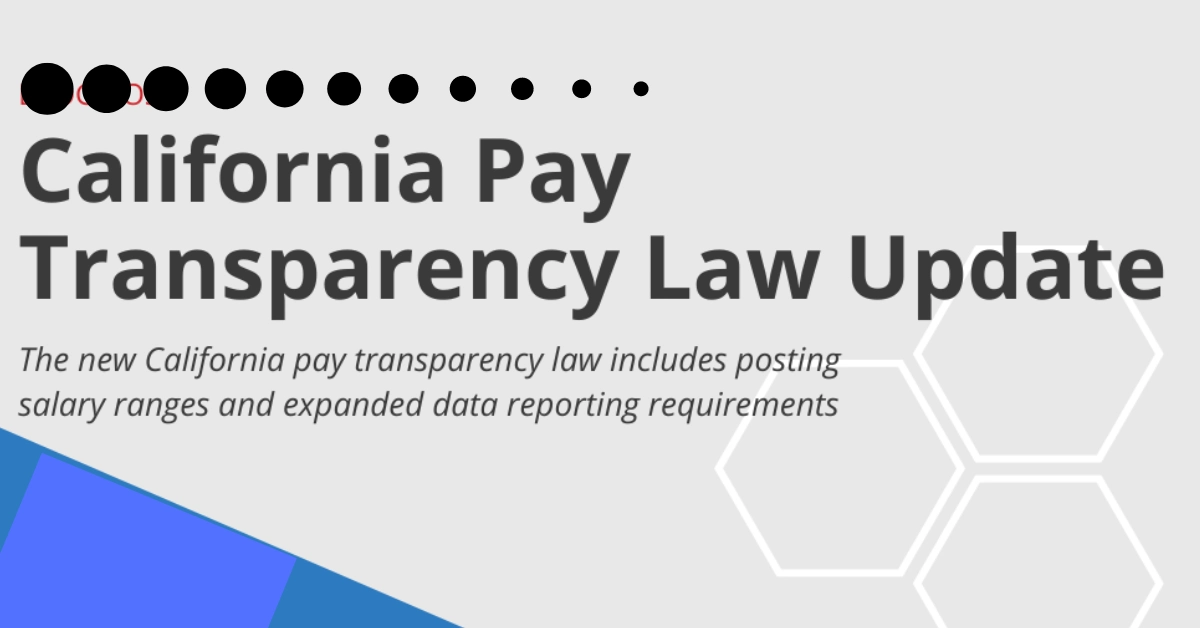California’s New Pay Transparency Law: The new pay transparency rule in California that mandates compensation scales in job postings took effect on January 1. Even though Senate Bill 1162 was approved in September, many employers were unsure how the California Labor Commissioner would apply a few significant provisions of the legislation.
Senate Bill 1162 mandates that firms with 15 or more employees disclose a pay scale in any open job announcement, among other significant modifications to the yearly pay data report.
The Labor Commissioner’s Office updated its Frequently Asked Questions on a few significant provisions of this statute, even though the state Civil Rights Department has not yet released guidance on the new annual wage data obligations.
Employee Threshold
Employers with 15 or more employees are subject to the newly updated section 432.3 of the Labor Code. The Labor Commissioner has issued guidance stating that the calculation of the 15-employee threshold is consistent with how an employer counts employees for 2022 COVID-19 Supplemental Paid Sick Leave (SPSL) and phase-in for the new minimum wage rates. The statute does not specify how to count the employees for coverage purposes.
Recent post:
- Video Game Workers Form Microsoft’s First US Union Labor!
- Two High School Cheerleaders Killed in High Speed Crash
If an employer has 26 or more employees, it is considered to be a covered employer to determine whether the new 2023 minimum wage applies. According to the advice provided on the subject, “The Labor Commissioner recommends that, if an employer at any point during a pay period reaches the threshold of 26 employees, they compensate their employees at the minimum higher wage rate for the duration of the entire pay period and moving forward as long as they have a minimum of 26 employees.”
According to the Labor Commissioner, the 15-employee criterion applies to pay transparency compliance when: 1) a company has 15 employees at any time during a pay period, and 2) at least one employee is currently based in California. All employees, including those who work outside of the state, are included in the total if a firm has more than one location.
Remote Workers
Before, employers weren’t sure if the pay transparency rule applied to job advertising made nationally or if a California resident could fill the position. The wage range must be disclosed in the job posting if it is ever going to be filled in California, either in-person or remotely, according to the Labor Commissioner’s clarification. This could alter how multistate or entirely remote firms comply with California’s pay transparency requirement.
Definition of Pay Scale

The salary or hourly compensation range the employer logically anticipates paying for the employment is referred to as the pay scale. According to the Labor Commissioner, bonuses, commissions, tips, and other incentives are not included in the wage scale. But if the position’s hourly or salary pay is determined by a piece rate or commission, the range of that rate or commission that the employer logically anticipates paying for the position must be stated in the job offer.
An employer must provide compensation scales in the job posting itself when doing so. No pay scale links or QR codes that substitute for publishing the wage information in the entire posting are permitted.
Legal Violations
From the time they became aware of the infraction, a person has one year to submit a written complaint to the Labor Commissioner (not when the violation may have occurred.) The Labor Commissioner’s instructions state that an employee has one year from the date of any retaliation to submit a claim with the Labor Commissioner.
An alternative is for an employee to bring a civil lawsuit for retaliation within a year of the revenge. An employee who wins a retaliation claim under the Labor Code may be granted reinstatement, back pay, interest on the back pay, and other remedies. Before taking legal action, an employee must not submit a retaliation allegation to the Labor Commissioner. Additionally, the Labor Commissioner may impose civil fines ranging from $100 to $10,000 for violations of this provision.



Leave a Reply